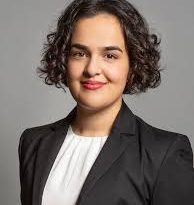Lord Shinkwin – 2016 Parliamentary Question to the Department of Health
The below Parliamentary question was asked by Lord Shinkwin on 2016-03-21.
To ask Her Majesty’s Government what assessment they have made of the impact that the UK National Screening Council’s review of cell-free DNA testing has had, and will have, on the community of people with Down’s syndrome; and in particular, the impact of cost per trisomy detected” being listed as an important factor to consider in their economic analysis.”
Lord Prior of Brampton
There is a long established NHS Fetal Anomaly Screening Programme (NHS FASP) that prospective parents can choose whether to participate in. The UK National Screening Committee (UK NSC) recommendation on non-invasive prenatal testing (NIPT) does not change the choices available to prospective parents within the programme therefore no assessment has been made.
The UK NSC announced its recommendation that NIPT should be introduced as an additional test into NHS FASP as part of an evaluation. The recommendation was not based on cost per trisomy but on the basis that NIPT is much more accurate than the current testing used in screening and can substantially reduce the number of pregnant women going on to have an invasive test, which itself carries a risk of miscarriage. The economic model reviewed by the UK NSC suggested that NIPT initially offered to women with a chance of greater than 1 in 150 of carrying a fetus with a trisomy would result in 9,912 NIPT tests being carried out, and 350 retests would be required. As a result of the NIPT testing, the number of invasive tests would fall from 7,910 to 1,434. The majority of invasive tests avoided are in trisomy free pregnancies, so that the number of test related miscarriage of healthy pregnancies would subsequently fall from 46 to three per year.


